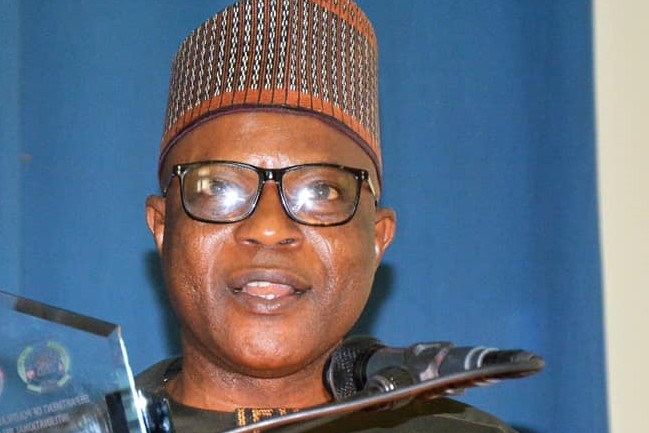A Professor of Political Science, Yusuf Ali Zoaka, has blamed the National Assembly for the current crisis thrown up by the recent amendment of Electoral Act 2022, to allow statutory delegates to vote at party congresses, meetings and conventions.
The lawmakers on May 10 re-amended the Electoral Act 2022 by introducing an alteration to Section 84(8).
The alteration seeks to include as delegates the president, vice president, National Assembly members, governors and their deputies and other statutory delegates.
In the bill earlier assented to President Muhammadu Buhari, Section 84 (8) allowed only elected delegates of a political party to participate in convention, congresses and meetings.
“By virtue of Section 84(8) of the Electoral Act 2022, delegates to vote at the indirect primaries and national convention of political parties to elect candidates for elections shall be those democratically elected for that purpose,” the bill had stipulated.
The new amendment which came at a time political activities are already in top gear, has been raising a lot of dust in the polity, especially with the deadline by Independent National Electoral Commission (INEC) to parties to conclude all activities close by.
In an interview with 21st CENTURY CHRONICLE, Professor Zoaka of the Department of Political Science, University of Abuja, said the lawmakers did not consider the principle of judicial test of validity before introducing an alteration into the Electoral Act 2022 in the middle of political activities.
He said the issue of delegates elections in the parties has been compounded by the frequent change in the laws, while urging the president to maintain the status quo in the matter.
He said signing the bill now will cause disruption in the processes of primaries already commenced by political parties under the provisions of the extant law.
“The amended act shows the lacuna in law making. You cannot make laws targeting some individuals or groups. Laws must have universal applicability. Laws made must not be ultra vires. Therefore, the electoral act shouldn’t have been made targeting a group of individuals because they are considered to be powerful.
“NASS did not consider the principle of judicial validity before making the law. This is because before a law is made you must ensure that you don’t make a law that discriminates against a person or group of person’s. In this case because the governor’s power was the target they now made a law that even excluded them as delegates,” he noted.
He added that assenting to the bill after most political parties had already started implementing the existing law could trigger litigations, which may mar the process.
He said, “However, before we get entangled in court processes that will create a bad situation for the country, there is need to convene a mini conference of all politicians particularly in the major parties to ensure that litigations are reduced and the process is allowed to berth.
“Democracy the Nigerian type is not progressing because of the character of the political class. For our democracy to grow we need to imbibe the right character that puts nation before self, service above greed, fear of God above everything else.”









